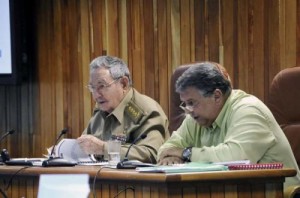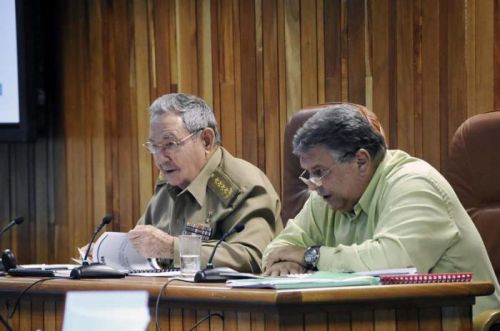 The Cuban Council of Ministers, headed by President Raul Castro, addressed important issues during a meeting on Friday, relevant to the update of the country’s economic model.
The Cuban Council of Ministers, headed by President Raul Castro, addressed important issues during a meeting on Friday, relevant to the update of the country’s economic model.
The need to separate state and entrepreneurial functions to increase the independence of companies and favor their efficiency and control over their resources were analyzed during the meeting. The proposal to draw up a law on police service and functions, in order to keep guaranteeing public order, the defense and protection of citizens’ rights, was also discussed.
These measures must be carried out in collaboration with state and economic entities, social institutions and the people, and to strengthen the authority and the legal support of police forces.
Also on the agenda was the discussion of a report on the registration of state facilities in 2013, whose plan includes 302,801 of them in the 2010-2014 time periods.
The rational use of drinking water was another aspect at the center of discussion during the Council of State meeting as the president of the National Water Institute, Ines Maria Chapman reported on the use of water in 2013 with emphasis on the sectors with the highest levels of consumption. The official presented a strategy aimed at making a more efficient use of water.
Meanwhile, government Vice-President Marino Murillo reported on the unification of the double currency, a process he described as extremely complex. He said that in the current stage, the training of executives and officials on recently issued indications has been crucial.
Murillo also presented a policy related to salaries, pensions and other income, which he said was first implemented with the recent salary increase for the health sector. The initiative aims at guaranteeing that each worker receives a salary in tune with his activity, encouraging responsibility of those on leading posts and promoting the appropriate role of salaries.
 Escambray ENGLISH EDITION
Escambray ENGLISH EDITION





Escambray reserves the right to publish comments.